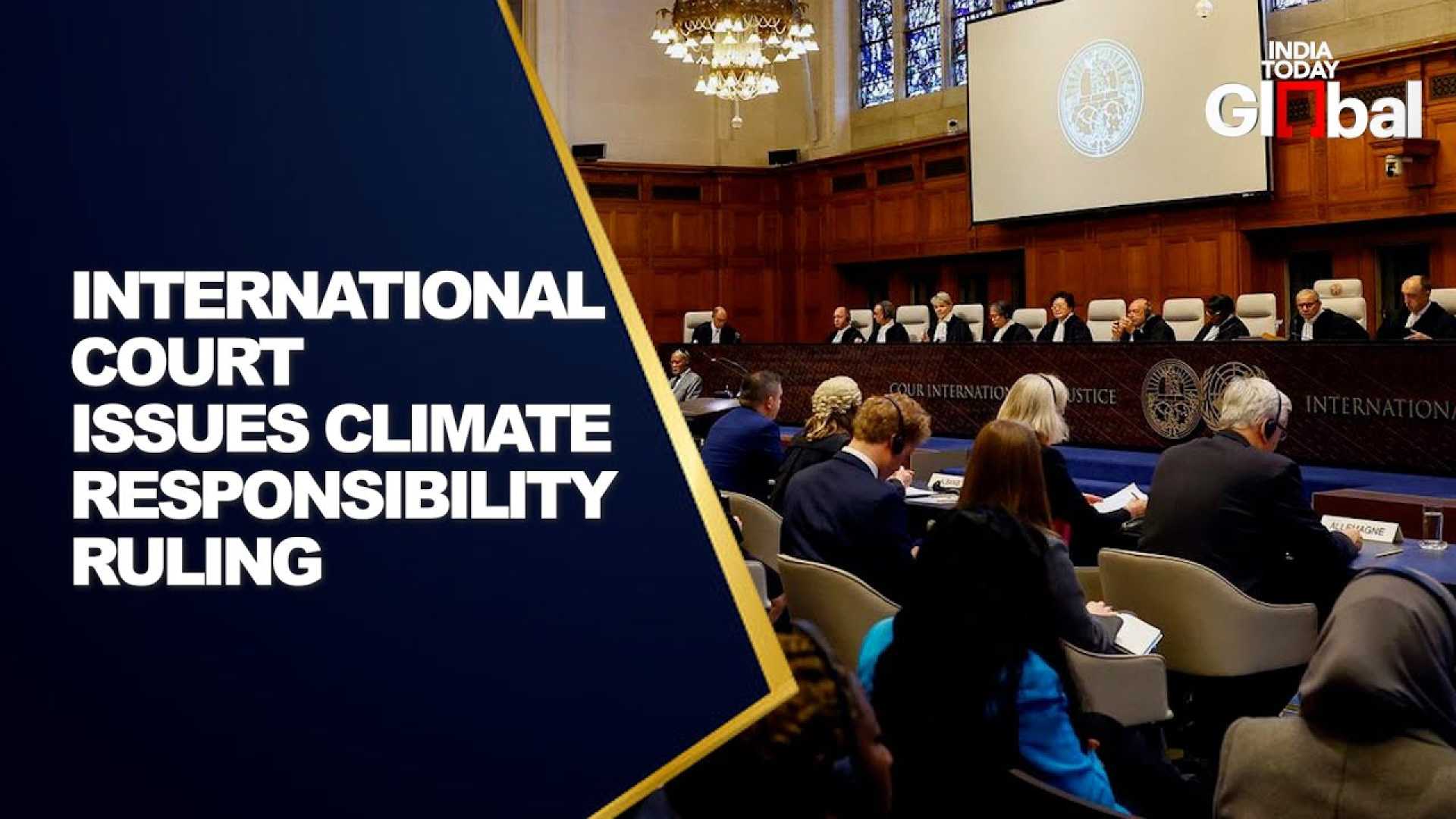World
U.N. Court Rules Nations Must Act on Climate Change

The Hague, Netherlands — The International Court of Justice (ICJ) ruled on July 23, 2025, that nations have an obligation under international law to take action on climate change, with potential legal consequences for failing to do so. This landmark decision is seen as a victory for small countries like Vanuatu that face severe risks from climate impacts.
The ruling marks the court’s first major case focused on climate change. It stated that countries could be held responsible for climate-related damages in other nations if they do not reduce emissions of greenhouse gases. Judge Yuji Iwasawa emphasized that in order to ensure the effective enjoyment of human rights, states must protect the climate system.
Vanuatu’s climate minister, Ralph Regenvanu, hailed the ruling as a significant milestone. “Today it’s been a landmark milestone for climate action,” he said. Vanuatu, with a population of about 300,000, has pushed for international recognition of its plight as rising sea levels threaten its existence.
In the court proceedings, Vanuatu and other nations argued that existing international laws require states to act against climate change, reinforcing the idea that all countries share a responsibility for the global environment. Vanuatu’s coalition included testimonies from nearly 100 nations, highlighting the widespread concern over climate impacts.
While the ruling is advisory and not legally binding, experts believe it could inspire a new wave of climate lawsuits worldwide. Maria Antonia Tigre from Columbia Law School remarked, “I think it will create this new wave of climate litigation.”
During the December hearings, Vanuatu illustrated its struggles, explaining how climate change indirectly targets its people while large emitters continue to contribute significantly to global greenhouse gas levels. The U.S. argued that climate negotiations through international agreements, like the Paris accord, are the best way to tackle the crisis.
Although the ICJ’s findings may not impose immediate obligations, they set a precedent that could empower smaller nations at upcoming international discussions, including the COP30 climate negotiations in Brazil. Climate activists echoed this sentiment, with Vishal Prasad of Pacific Islands Students Fighting Climate Change expressing hope that the decision energizes global efforts to combat climate change.












